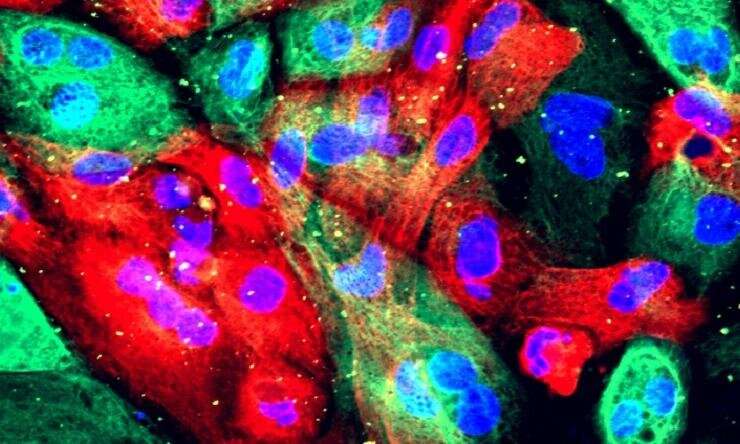Initial treatment choice for prostate cancer doesn't affect mental health outcomes

Depression and other mental health outcomes are similar for men choosing different options for initial treatment of localized prostate cancer, reports a study in the Journal of Urology.
"However, our research identifies several characteristics linked to declines in emotional well-being after starting prostate cancer treatment, including older age, poor overall health, and higher initial depressive symptoms," comments lead author Amy N. Luckenbaugh of Vanderbilt University Medical Center, Nashville.
New data on mental health outcomes of treatment for early prostate cancer
Men with localized prostate cancer have a choice of initial treatments. Previous studies have shown that these treatment options—including surgery, radiotherapy, or active surveillance—have similar survival rates. They differ mainly in terms of treatment-related complications, such as urinary symptoms and erectile dysfunction, and the interventions needed to manage them.
Few studies have looked at how treatment choices for prostate cancer affect mental health outcomes. "That's in contrast to breast cancer and colorectal cancer, where studies have shown that sexual dysfunction and body image concerns contribute to emotional distress and worsening psychosocial function," according to Dr. Luckenbaugh.
The researchers analyzed follow-up data on 2,742 men entering treatment for localized prostate cancer, drawn from the ongoing CEASAR study (Comparative Effectiveness Analysis of Surgery and Radiation for Localized Prostate Cancer). About 52% of patients opted for immediate surgery; 35% received radiation therapy, with or without hormone (androgen deprivation) therapy; and 14% received active surveillance, with close monitoring to delay treatment until signs of progression occurred.
Over five years of follow-up, the patients completed standard assessments of depression, emotional well-being, and energy/fatigue. Differences between treatment groups were analyzed, with adjustment for other characteristics.
The data showed "no evidence of a clinically meaningful treatment-related effect on longitudinal assessments of depressive symptoms," Dr. Luckenbaugh and coauthors write. In all treatment groups, average scores for depressive symptoms were low at initial evaluation and remained low at follow-up.
Baseline scores also indicated good emotional well-being and energy/fatigue scores in this group of prostate cancer patients. Despite some variation, there were no "clinically meaningful" differences in men who opted for surgery, radiation therapy (with or without hormone therapy), or active surveillance.
However, other patient characteristics did influence mental health outcomes. In particular, depressive symptoms were more likely to get worse in men who had higher initial depression scores. Depression was also more likely to worsen in patients with poorer overall health, lower physical functioning, and lower involvement in treatment decision-making; as well as in men who were older, unmarried, and had lower incomes. Many of the same factors, along with lower emotional support, predicted declines in emotional well-being scores.
The analysis is the first prospective study of mental health outcomes in men with localized prostate cancer. The results suggest that while choice of initial treatment isn't related to depression, emotional well-being and energy/fatigue during follow-up, other patient characteristics are significant predictors. Dr. Luckenbaugh and colleagues conclude, "It is imperative that urologists seize available opportunities to identify and intervene in patients with mental health concerns both at the time of diagnosis and during follow-up."
More information: Amy N. Luckenbaugh et al, Association between Treatment for Localized Prostate Cancer and Mental Health Outcomes, Journal of Urology (2022). DOI: 10.1097/JU.0000000000002370




















